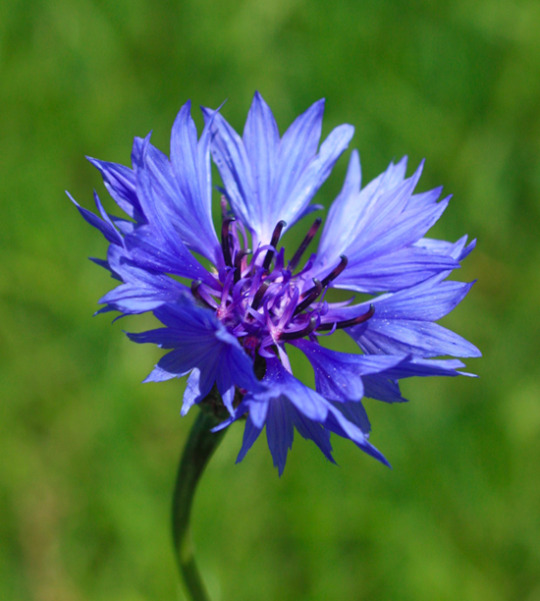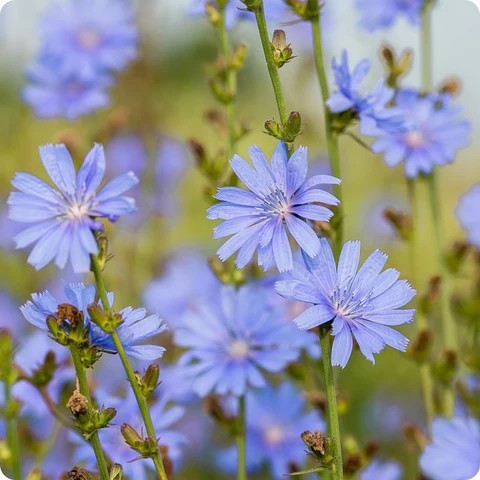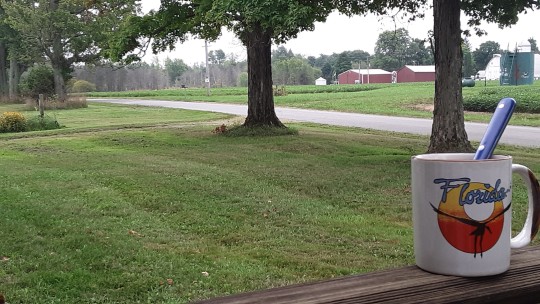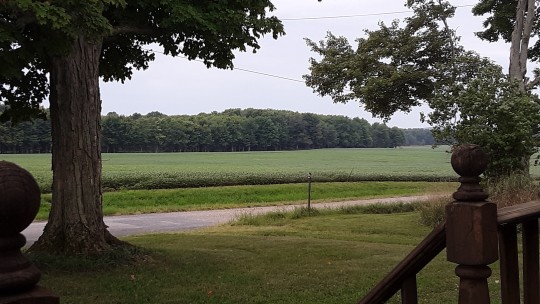#Chicory Coffee
Text

Been a while!
Started some chicory coffee wine!
Recipe adapted from Happy Homestead on yt
#ketchup laser#kl brews#chicory#chicory coffee wine#chicory coffee#home brewing#homebrew#happy homestead
48 notes
·
View notes
Text
The Sleep of Reason Produces Monsters (apple-cinnamon tea, chicory coffee, hazelnut syrup, sugar to taste)*
(*it's delicious actually)
2 notes
·
View notes
Text
Exploring the Uses of Medicinal Plants: Nature's Pharmacy

Introduction to Medicinal Plants
Medicinal plants have been integral to human health and wellness for millennia, offering a treasure trove of natural remedies that continue to play a crucial role in both traditional and modern medicine. In this comprehensive exploration, we delve into the diverse uses of medicinal plants, from their historical significance to their potential future in research and innovation.
Definition and Historical Significance
Medicinal plants encompass a broad spectrum of botanical species that have been utilized for their therapeutic properties. This practice dates back to ancient civilizations, where healers and shamans discovered the healing potential of various plants, laying the foundation for herbal medicine.
Importance in Traditional and Modern Medicine
Throughout history, medicinal plants have been the cornerstone of traditional healing systems across cultures, from Ayurveda in India to Traditional Chinese Medicine (TCM) and Native American herbalism. In modern times, these plants remain vital, providing sources of active compounds for pharmaceutical drugs and serving as natural alternatives for health and wellness.
Common Medicinal Plants
Overview of Well-Known Plants (e.g., Aloe Vera, Ginseng, Turmeric)
Certain medicinal plants have gained widespread recognition for their health benefits. Aloe vera, known for its soothing properties, is used to treat burns and skin irritations. Ginseng is prized in traditional Asian medicine for its apoptogenic properties, promoting vitality and longevity. Turmeric, has potential anti-inflammatory and antioxidant effects due to its active compound curcumin.
Their Traditional and Current Uses
These plants have versatile applications. Aloe vera is used in skincare products, herbal remedies, and even beverages for its cooling and healing properties. Ginseng is incorporated into tonics and supplements to boost energy and enhance cognitive function. Turmeric finds its way into culinary dishes and dietary supplements, offering support for joint health and overall wellness.
Health Benefits of Medicinal Plants
Overview of Various Health Conditions Treated
Medicinal plants address a wide range of health conditions, spanning digestive issues, skin disorders, immune support, respiratory ailments, and more. Each plant contains unique bioactive compounds that target specific areas of health.
Examples: Digestive Issues, Skin Disorders, Immune Support
For digestive health, plants like peppermint and ginger aid in soothing upset stomachs and relieving nausea. Calendula and lavender are prized for their skin-healing properties, used in ointments and creams for eczema and wounds. Immune-boosting plants such as echinacea and elderberry are popular during cold and flu seasons.
You may try this kit for your better health through herbs.
Phytochemicals and Active Compounds
Explanation of Phytochemicals
Phytochemicals are bioactive compounds found in plants that contribute to their medicinal properties. These include polyphenols, flavonoids, alkaloids, and terpenes, each with specific health-promoting effects.
Importance of Active Compounds in Medicinal Plants
The efficacy of medicinal plants hinges on their active compounds. For instance, the polyphenols in green tea exhibit antioxidant properties, protecting cells from oxidative stress. Alkaloids like caffeine in coffee and tea contribute to their stimulating effects on the nervous system.
Antioxidant Properties
Role of Medicinal Plants in Fighting Oxidative Stress
Oxidative stress contributes to aging and disease by causing cellular damage. Medicinal plants rich in antioxidants, such as blueberries and green tea, help neutralize free radicals and reduce oxidative damage.
Examples of Plants with High Antioxidant Content
Berries like goji and acai are celebrated for their antioxidant-rich profiles, offering protection against chronic diseases like heart disease and cancer. Turmeric, with its potent curcuminoids, also exhibits strong antioxidant effects.
Anti-inflammatory Effects
How Medicinal Plants Reduce Inflammation
Inflammation underlies many chronic diseases, from arthritis to cardiovascular conditions. Medicinal plants like ginger, turmeric, and willow bark contain compounds that inhibit inflammatory pathways, offering natural relief without the side effects of conventional anti-inflammatory drugs.
Plant Examples (e.g., Ginger, Turmeric, Willow Bark)
Gingerols in ginger and curcumin in turmeric are known for their anti-inflammatory properties, making them popular choices for joint pain and muscle soreness. Willow bark contains salicin, a precursor to aspirin, which eases pain and reduces inflammation.
This kit may help you to maintain your health better through herbs.
Digestive Health
Medicinal Plants for Digestive Disorders
Plants like peppermint, chamomile, and fennel seeds are used to alleviate digestive discomfort, including bloating, indigestion, and irritable bowel syndrome (IBS). These herbs promote healthy digestion and soothe gastrointestinal distress.
Natural Remedies for Common GI Issues
Peppermint oil relaxes intestinal muscles, easing spasms and discomfort. Chamomile tea reduces inflammation in the gut lining, while fennel seeds aid in digestion and reduce gas.
Immune System Support
Plants That Boost Immunity
Echinacea, garlic, and astragalus are renowned for their immune-enhancing properties. These plants stimulate the immune response and help the body fend off infections.
Apoptogenic Plants and Their Role
Apoptogenic herbs like ashwagandha and holy basil help the body adapt to stress, which indirectly supports immune function by reducing the negative impact of stress hormones on immunity.
Skin Care and Healing
Use of Plants in Skincare Products
The beauty industry incorporates medicinal plants into skincare formulations for their nourishing and healing effects. Aloe vera gel, shea butter, and rosehip oil are popular ingredients in natural skincare products.
Healing Properties of Medicinal Plants for Skin Conditions
Calendula soothes inflamed skin and promotes wound healing. Tea tree oil is used for its antibacterial properties in treating acne. Rosemary extract acts as a natural preservative and antioxidant in cosmetic products.
Pain Relief
Natural Pain-Relieving Properties of Plants
Plants like cannabis, willow bark, and capsaicin (from chili peppers) are effective pain relievers. They work through various mechanisms to alleviate pain without the adverse effects of opioids.
Comparison with Pharmaceutical Options
Medicinal plants offer a gentler alternative to pharmaceutical painkillers, with fewer side effects and a lower chance of addiction. For chronic pain management, herbal remedies provide sustainable relief.
Stress and Anxiety Management
Plants for Calming Effects
Lavender, passionflower, and valerian root are used to reduce stress and anxiety. These plants have sedative properties that promote relaxation and improve sleep quality.
Role of Herbal Teas and Aromatherapy
Herbal teas infused with chamomile or lemon balm have calming effects on the nervous system. Essential oils like lavender and bergamot used in aromatherapy alleviate stress and uplift mood.
Cardiovascular Health
Plants for Heart Health
Hawthorn, garlic, and flaxseed are beneficial for cardiovascular health. They support healthy blood pressure, cholesterol levels, and overall heart function.
Impact on Blood Pressure and Cholesterol Levels
Garlic contains allicin, which helps lower blood pressure and cholesterol. Hawthorn berries improve blood flow to the heart and strengthen its contractions.
Respiratory Health
Medicinal Plants for Respiratory Issues
Eucalyptus, peppermint, and thyme are valued for their respiratory benefits. They relieve congestion, soothe coughs, and support lung health.
Examples: Eucalyptus, Peppermint, Thyme
Eucalyptol in eucalyptus oil acts as a natural decongestant, while menthol in peppermint oil opens airways and relieves sinus pressure. Thyme contains thymol, an expectorant that loosens phlegm.
Cancer Prevention and Support
Role of Medicinal Plants in Cancer Prevention
Certain plants like turmeric, green tea, and berries possess anti-cancer properties. They inhibit tumor growth and protect cells from oxidative damage.
Complementary Use with Conventional Treatments
Medicinal plants complement conventional cancer treatments, helping to manage side effects like nausea and fatigue. They may also enhance treatment efficacy and improve overall quality of life.
Women’s Health
Plants for Menstrual Issues and Menopause Symptoms
Black cohosh, dong quai, and chaste berry are used to alleviate menstrual cramps and menopausal symptoms. These herbs regulate hormonal balance and support reproductive health.
This guide may also help you to keep yourself fit through nature.
Safety and Efficacy Considerations
While herbal remedies can be effective, it's essential to consult with a healthcare provider, especially during pregnancy or when managing chronic conditions. Proper dosage and quality control are crucial for safety.
Memory and Cognitive Function
Plants That Enhance Brain Health
Ginkgo biloba, bacopa, and gotu kola are known for their cognitive-enhancing effects. They improve memory, concentration, and overall brain function.
Impact on Memory and Concentration
Ginkgo biloba increases blood flow to the brain, enhancing cognitive performance. Bacopa monnieri supports neurotransmitter function, improving memory retention and mental clarity.
Metabolic Health
Plants That Support Metabolism
Cinnamon, bitter melon, and fenugreek aid in metabolic health. They regulate blood sugar levels, promote insulin sensitivity, and support weight management.
Effects on Weight Management
Green tea catechins and capsaicin from chili peppers boost metabolism and promote fat burning. These plants are valuable additions to a healthy diet and exercise routine.
Sustainability and Ethical Harvesting
Importance of Responsible Sourcing
As demand for medicinal plants grows, sustainable harvesting practices are vital to preserve biodiversity and protect natural habitats. Ethical sourcing ensures the long-term viability of medicinal plant resources.
Promoting Biodiversity and Conservation
Cultivation of medicinal plants through organic farming and wildcrafting supports ecosystem health and maintains genetic diversity. Conservation efforts safeguard endangered species and promote sustainable use.
Cultural and Ritual Uses
Traditional Practices Involving Medicinal Plants
Medicinal plants hold cultural significance in rituals and ceremonies worldwide. Indigenous cultures have preserved ancient healing traditions centered around plant-based medicine.
Significance in Various Cultures
For example, Ayahuasca, a psychoactive plant brew, is used by Amazonian tribes for spiritual healing and enlightenment. Native American tribes employ sage and cedar for purification rituals.
Future of Medicinal Plant Research
Trends in Herbal Medicine
Advancements in technology and scientific research are uncovering new applications for medicinal plants. Phytopharmaceuticals and herbal supplements continue to gain popularity in mainstream healthcare.
Potential Discoveries and Innovations
Research on plant genomics, bioavailability of phytochemicals, and synergistic effects of herbal combinations offer promising avenues for novel therapies. The future holds exciting prospects for harnessing the full potential of medicinal plants.
Conclusion
The multifaceted uses of medicinal plants span ancient traditions to cutting-edge research, demonstrating their enduring relevance in promoting health and well-being. As we navigate an era of holistic healthcare, incorporating these natural remedies into our lifestyles fosters a harmonious relationship with nature and unlocks the profound healing potential of botanical medicine.
Here you may try this kit for your health care through herbs.
Wish you the best of your health!
DISCLAIMER:
Some of the links in this article are affiliate links, which means I may earn a commission if you purchase through those links.
#health tips#Nature's Pharmacy#uses of medicinal plants#myherbal#herbal garden#Chicory Coffee#Quick Backyard Remedy#Medicinal Garden#Herbal Medicine#herbalism#health and wellness
1 note
·
View note
Text
https://www.localbusinesslisting.org/blog/what-is-south-indian-filter-coffee
0 notes
Text
Coffee break

fullbody comm for @LackFur in twitter
142 notes
·
View notes
Text

#rkdd#deranged detective#kamonohashi ron no kindan suiri#official media#official art#anime#aomi coffee#rkdd x aomi coffee#ron kamonohashi#totomaru isshiki#amamiya#spitz feier#chikori monki#chicory monki#anime art#chibi art
35 notes
·
View notes
Text

Roasted Chicory and Dandelion Root Coffee (Vegan)
#vegan#drinks#american cuisine#vintage#decaf coffee#tea#herbal tea#chicory root#dandelion root#plant milk#cinnamon#maple syrup
14 notes
·
View notes
Text

- Chicory
#coffee machine#espresso machine#liquidusmechanica#specialty coffee#video games#coffee#chicory#indie games
19 notes
·
View notes
Text
It's starting to be more available now bc it's getting swept up in the health food craze but it's so annoying how ingredients/food that's traditional to the region is much harder to get than all the "exotic" food stuffs that are considered normal now
#like whaddayah meeeeaaaaannn brewed chicory was a common drink here for ages way before coffee was introduced#and now if I want it I have to go to the most etepetete organic expensive shop#same with buckwheat and millet although they sell it at Aldi now too#*exotic as in it doesn't grow here
11 notes
·
View notes
Text
On Tantrums and Chicory
I had a terrific tantrum with my dearest husband the other day. He emptied my jar of chicory into the coffee jar, saying ‘it took up too much space’ and ‘it tastes the same anyway’.
It most certainly does not.
He did it, too, after I told him in no uncertain terms that he was not to mix the two, when he suggested it a night prior to the event. He said the result of mixing the two was a creamier…

View On WordPress
#arguments#chicory#coffee#first world problems#laughter#life#marriage#marriage life#married life#personal#tantrums#thoughts#writing
2 notes
·
View notes
Note
Anon fact: You either love or hate chicory coffee.
(Mostly because I’m curious and that seems like a New Orleans thing)
Oh my goodness the way I laughed when I read this! I suppose I backed myself into this corner being such a stereotypical southerner and all 😂
But you’re totally right chicory coffee is a New Orleans thing. Maybe I’m selling myself out as more Cajun than New Orleanian….but I’ve never had chicory coffee before 😬
Okay okay okay before any New Orleanians come for me y’all blame my family for telling me how nasty it was my entire life! I now revoke my New Orleans status and that is all.
Got another fact on your mind?
7 notes
·
View notes
Text
Controversial opinion, but chicory "coffee" >> filter coffee .
#filter coffee/Americano always tastes weak to me#my default is smaller strong black coffees. chicory is for when i want a big mug of hot coffee-like beverage.#sort of middle ground between coffee and tea#also nice iced#i'm largely insensitive to caffeine (runs in the family) so that part doesn't matter
2 notes
·
View notes
Text
youtube
Watch the American Climate Leadership Awards 2024 now: https://youtu.be/bWiW4Rp8vF0?feature=shared
The American Climate Leadership Awards 2024 broadcast recording is now available on ecoAmerica's YouTube channel for viewers to be inspired by active climate leaders. Watch to find out which finalist received the $50,000 grand prize! Hosted by Vanessa Hauc and featuring Bill McKibben and Katharine Hayhoe!
#ACLA24#ACLA24Leaders#youtube#youtube video#climate leaders#climate solutions#climate action#climate and environment#climate#climate change#climate and health#climate blog#climate justice#climate news#weather and climate#environmental news#environment#environmental awareness#environment and health#environmental#environmental issues#environmental justice#environment protection#environmental health#Youtube
14K notes
·
View notes
Text
I always thought chicory was cornflower, until I looked it up for that tag meme.
Left is Cornflower, right is Chicory. In my opinion, the chicory is a lot prettier, they grow on the fields here a lot and just have that gentle, innocent blue


#ooc#also searching for chicory i found that apparently you can make coffee out of the roots or something?#just another reason theyre perfect for stel
5 notes
·
View notes
Text
Headcannon/fanfic prompt vis-a-vis the Postcards from Snagglepuss
Picture, if you will, Snagglepuss and Huckleberry Hound, on their motorhome experiences across America, getting a case of Camp Coffee and Chicory Essence from Jolly Olde England ... and actually making use of it as the coffee of choice for the crew, especially as such requires adding boiling water (or, alternately, hot milk) to a little of the liquid essence in a mug.
#hanna barbera#headcannon#fanfic prompt#postcards from snagglepuss#camp coffee and chicory#on the road#hannabarberaforever
2 notes
·
View notes
Text
https://www.localbusinesslisting.org/blog/why-is-chicory-mixed-with-coffee-in-south-indian-filter-coffee
0 notes
Text



so true buffy sainte-marie it IS a sweet september morning
#it's overcast and not hot out yet and slightly muggy but not deadly yet and ive got chicory coffee in my florida mug#(ive never been to florida) and still one more day off this weekend#has man ever enjoyed greater luxury
19 notes
·
View notes
Text
youtube
Watch the 2024 American Climate Leadership Awards for High School Students now: https://youtu.be/5C-bb9PoRLc
The recording is now available on ecoAmerica's YouTube channel for viewers to be inspired by student climate leaders! Join Aishah-Nyeta Brown & Jerome Foster II and be inspired by student climate leaders as we recognize the High School Student finalists. Watch now to find out which student received the $25,000 grand prize and top recognition!
#ACLA24#ACLA24HighSchoolStudents#youtube#youtube video#climate leaders#climate solutions#climate action#climate and environment#climate#climate change#climate and health#climate blog#climate justice#climate news#weather and climate#environmental news#environment#environmental awareness#environment and health#environmental#environmental issues#environmental education#environmental justice#environmental protection#environmental health#high school students#high school#youth#youth of america#school
14K notes
·
View notes